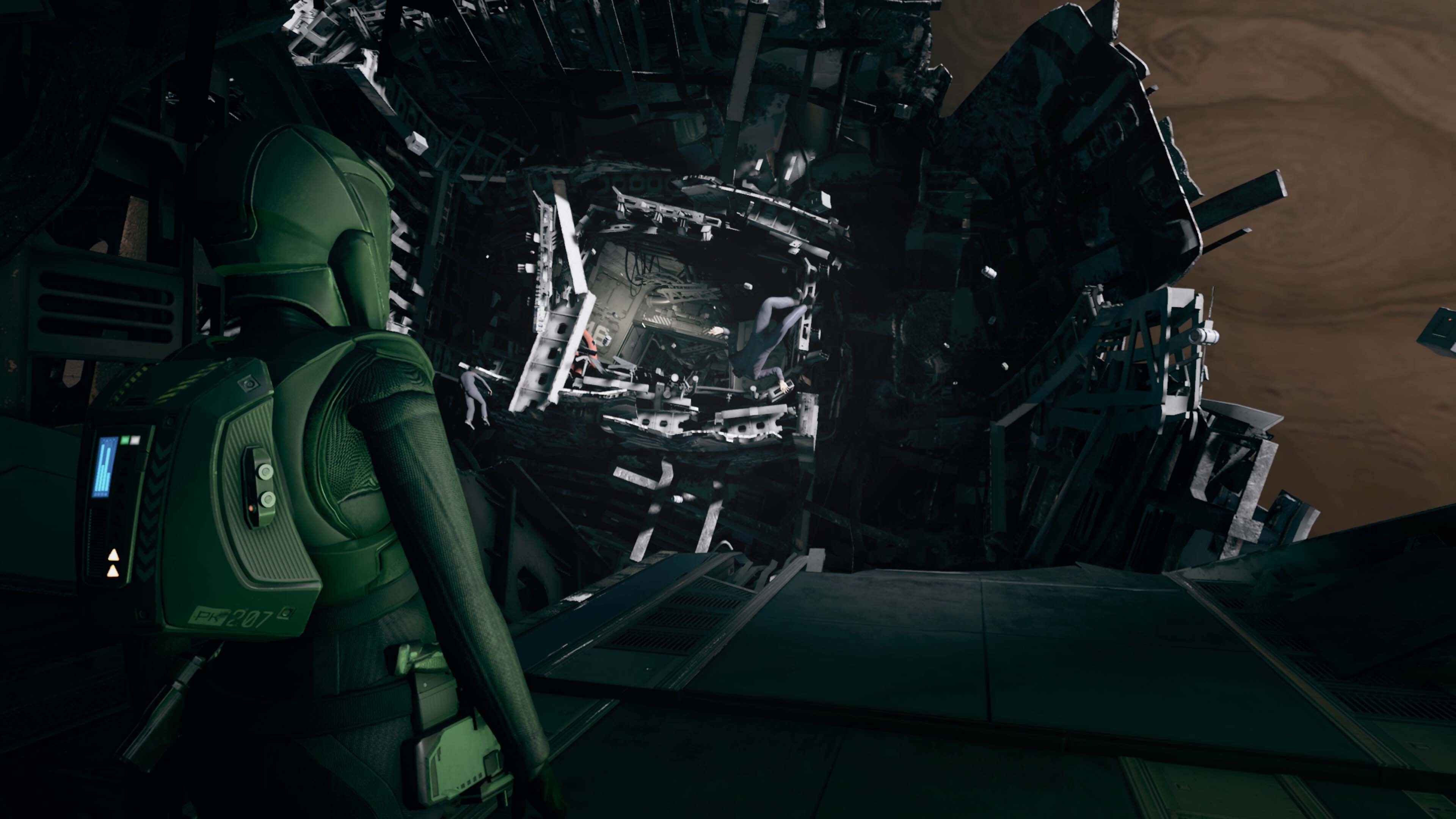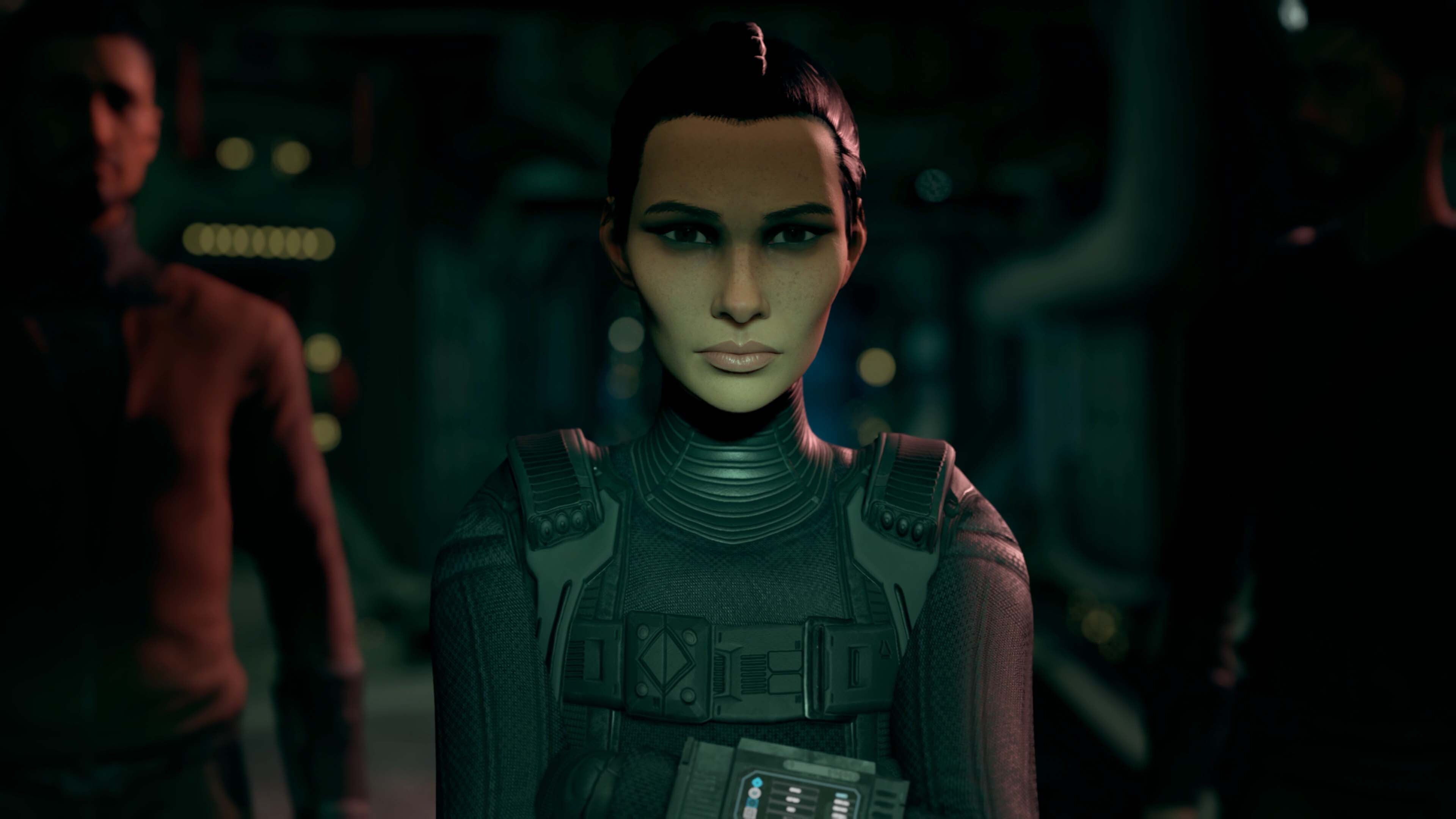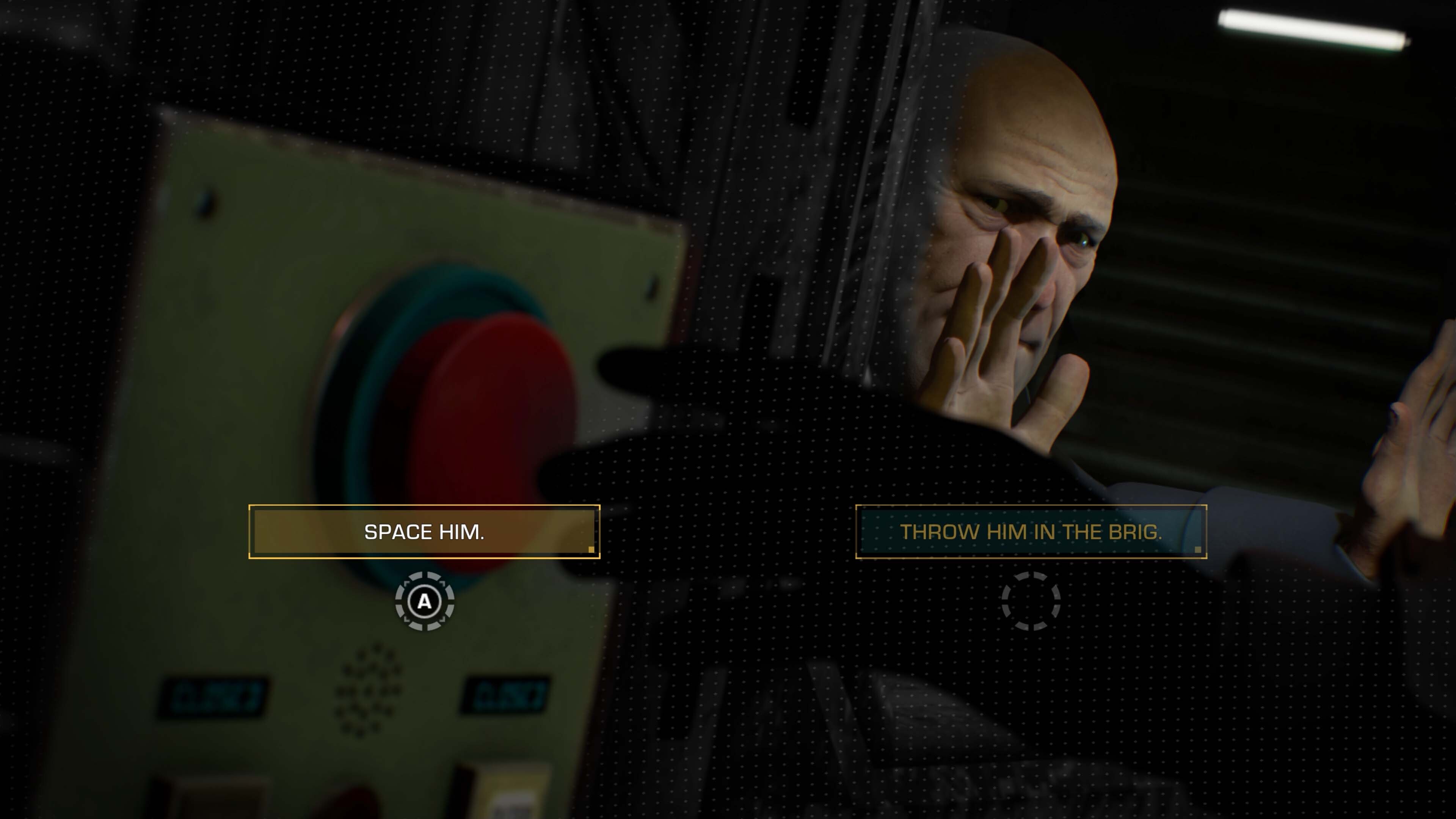
Platform reviewed: PC
Available on: PC, PS5, PS4, Xbox Series X|S, Xbox One
Release date: July 27, 2023
Nothing good has ever come from exploring a derelict spaceship – except great stories.
The Expanse: A Telltale Series doesn’t reinvent the adventure genre, instead streamlining and refining many of its conventions. That it does so while providing a relentless and engaging story is a testament to the smart decisions taken by developer Deck Nine, which has scraped away much of the extraneous features of graphic adventure games to reveal their underlying appeal.
The game is a prequel to the cult show of the same name. Despite that, it feels very much standalone, with a story that provides insight into one of the show’s main characters while being wholly accessible to newcomers.
As such it is in the execution of the story that The Expanse lives or dies. Happily the game doesn’t overload the player with exposition, relegating much of the backstory of the setting to lightweight audio and text logs found scattered throughout its world. It shows rather than tells the impact of that setting through the interactions of main character Camina Drummer and her supporting cast, all of whom feel fully realised right from the off.
Characters that in less assured hands would feel cliched instead feel like genuine products of their environment. Khan, the irascible and tetchy pilot of the Artemis – the game’s primary location – can be humanised considerably throughout the first two episodes, transforming from a silhouette in a pilot’s seat to a tormented ally to Drummer.
A real scrap

It’s a neat way to integrate the characters’ occupations as scavengers into the narrative while also reiterating that space in the Expanse-verse is inherently hostile to humankind. That fact plays into the story repeatedly, from the threat of execution through being ejected from an airlock to the impact it has upon the psyches of Belters – a faction who have no affiliation to any planet within the solar system.
That hostility is at the core of the story. Over the first few episodes Drummer and the crew of the Artemis discover the existence of a valuable item from a derelict ship, the mere knowledge of which makes them the target of pirate attacks and in-fighting within the crew themselves. It provides impetus for the decisions that you-as-Drummer have to make in order to keep the crew alive, while also emphasising the lack of value placed on human life that is integral to the setting.
The game mixes up the exploration sequences with scenes of relatively calm relationship development and QTE-based sections similar to those of previous Telltale Games. It provides welcome variety within each episode – and it doesn’t hurt that the action sequences have stellar art direction, making each shot and impact feel visceral. Those looking for reaction-based action won’t find it here, however: the timing on QTEs feels very forgiving by default, and the alternate settings are even laxer.
Despite the variety, each episode itself feels relatively short. Even seeking out everything in the environments it took me about 90 minutes to complete episode two, while actively seeking out every obtainable item in the zero-gravity section. These scenes are always fun, reminiscent of a more chilled-out Dead Space 3’s debris field section, but if you rushed through them the total playtime of each episode would be severely curtailed.
Short but sweet

That brevity also negatively affects the character development. You’ll find Drummer going from relative strangers to bosom buddies with other characters in only a few interactions. Likewise, the inevitable betrayals sting less than they should because of the short amount of time you’ve spent getting to know the characters. That’s mitigated by some fantastic performances from the voice actors – including Drummer’s original actor Cara Gee – and career-best facial animation from Deck Nine, but it does limit the impact of some game-changing interactions.
Navigating a vast environment in search of fuel, main character Camina Drummer explores her relationship with the other characters as much as the shattered skeletons of the fragile ships upon which they rely for survival. A perfect encapsulation of the setting and the cast – all in zero gravity.
Performance is never less than rock-solid even in the zero-g sections. That focus upon consistent frame rate and visual fidelity (a far cry from the Telltale games of old) is a huge part of what makes The Expanse feel so engaging: Deck Nine’s experience with the Life Is Strange series is paying dividends here, cementing the developer as a frontrunner in the graphic adventure genre.
There are the occasional muddy or repeating textures, as well as a bizarre glitch relating to audio levels I came across where Drummer’s internal narrative was roughly half the volume of her normal speech, making it seem like she was whispering in her own mind. One early graphical issue is also one of the most easily noticed, as an entire moon seems out of place due to texture resolution. Photos and posters dotted around the environment seem to have a default Photoshop filter applied to them, and though this is easily chalked up to a stylistic choice it still sticks out compared to the environments they feature in.
While the game’s physics never break, it is occasionally disconcerting to see Drummer nonchalantly bat a severed head through a zero-gravity environment as though it were a ping-pong ball, or to snap upright going from wall to ceiling.
Sidehead 3
The Expanse promises that most of the choices you make in the first three episodes will come home to roost in the fourth and especially the fifth episodes of the season. Given that I only had access to the first three for this review, it is impossible to say to what extent that is true. If, ultimately, the game’s choices dovetail towards a single canonical ending, that would be a disappointment given the numerous possibilities opened up during my playtime.
However, the fact that the game provides only one or two major choices per episode – helpfully signalled by a unique binary choice effect on screen – makes me believe the developers are deliberately avoiding that possibility. They promise that everyone aboard the Artemis can live, or all of them save Drummer can die. The first three episodes are a pared-back, streamlined story that seems to set up multiple branches towards the end, rather than a traditional adventure game diamond-shaped narrative structure.
That makes the choices you do make feel weighty. You dimly sense the shape of negative outcomes behind every decision: the game even lightly lampshades the fact that often there are no good options in as hostile an environment as space. The cold equations of survival are as much an antagonist as the pirates Drummer fights, and The Expanse makes you face them directly. It’s merciless, and the better for it.
At $39.99 for the base five episodes (with a bonus DLC episode to be released later), The Expanse’s success as an adventure game will be judged on how much those choices ultimately matter. While fans of the show already know the fate of some of its characters, as a standalone experience the game is compelling from moment to moment, a pared-back exploration of what makes adventure games so appealing.
Accessibility
The Expanse: A Telltale Series provides a welcome range of accessibility features that impact gameplay and playability. It offers three separate colourblind options, in addition to a number of warnings before scenes that use bright lights or loud noises.
In addition, the developers have included options for QTEs and critical decisions that either expand or remove time restrictions. These options are offered from the very start of the game, ensuring that there are no situations in which accessibility is an issue for any player.
How we reviewed The Expanse: A Telltale Series
The Expanse’s first three episodes were initially played over 4 hours, with a further 90+ minutes played to see how different choices played out within the first two episodes. I didn’t have review access to the final two episodes, nor the DLC episode. I played with first an Xbox controller and then a mouse and keyboard (preferred the controller, but both work well).
I haven’t watched any of the show upon which it is based, nor read the books, but have endured friends endlessly telling me to watch it.
The Expanse: A Telltale Series is out now for PlayStation 5, PlayStation 4, Xbox One, Xbox Series X and Series S, Microsoft Windows







